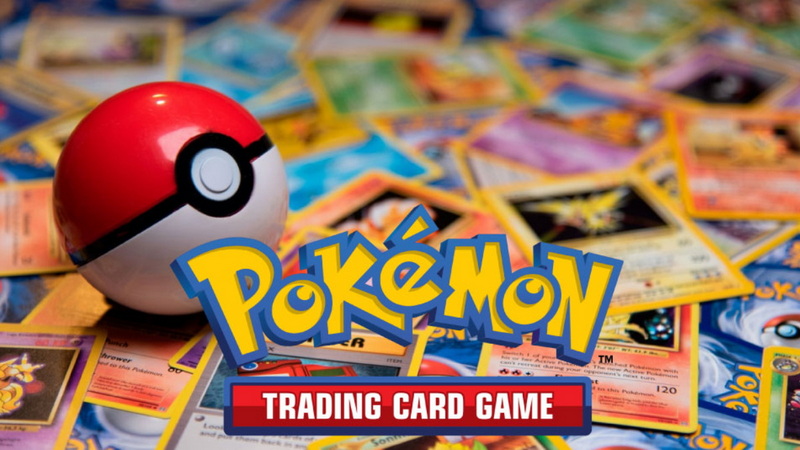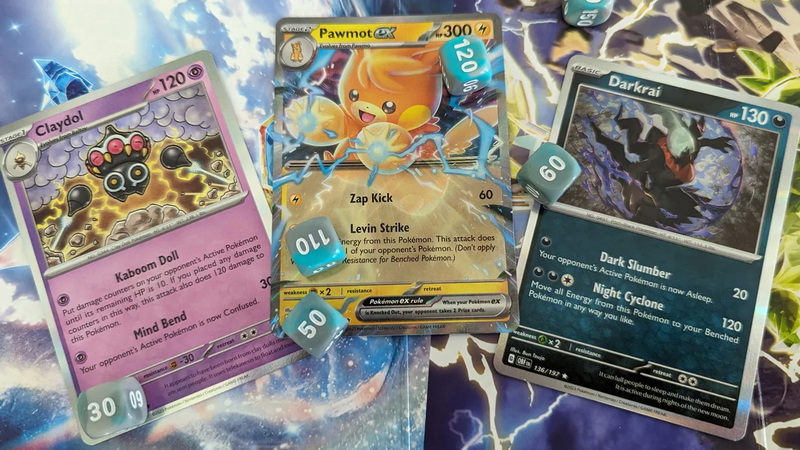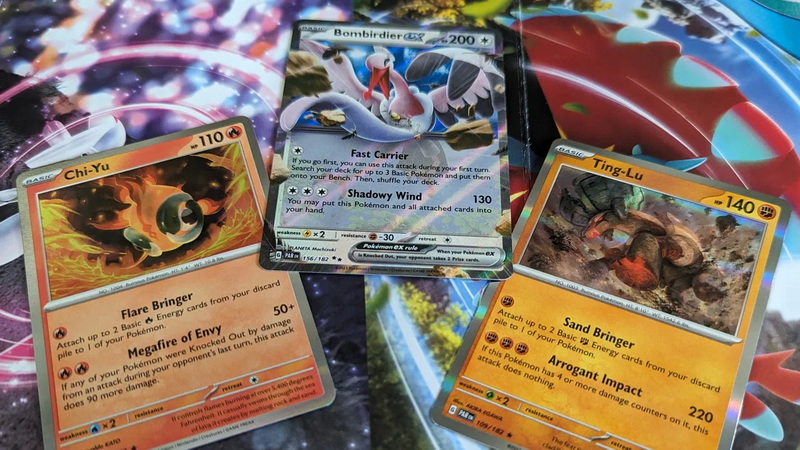Content Menu
● Understanding Trading Card Games
>> Common Elements in TCGs
● Getting Started with TCGs
● Building Your Deck
>> Tips for Building a Competitive Deck
● Basic Gameplay Mechanics
>> Turn Structure
>> Winning Conditions
● Strategies for Success
● Advanced Strategies for Competitive Play
>> Mastering Evolutions and Combos
>> Exploiting Weaknesses
>> Navigating the Metagame
● Importance of Community Engagement
● Conclusion
● Frequently Asked Questions
>> 1. What are some popular trading card games?
>> 2. How do I start playing a trading card game?
>> 3. What is deck synergy?
>> 4. How important is community engagement in TCGs?
>> 5. Can I trade my cards with other players?
● Citations:
Trading Card Games (TCGs) have captivated millions around the globe, blending strategy, luck, and community into an engaging pastime. Whether you're a seasoned player or a newcomer, understanding how to play TCGs can enhance your gaming experience. This comprehensive guide will walk you through the basics of trading card games, including rules, strategies, deck building, and the importance of community.

Understanding Trading Card Games
At its core, a trading card game is a strategy-based competition where players build and use decks of cards to outmaneuver their opponents. Each card represents unique elements such as characters, spells, or items, which players utilize to achieve victory by reducing their opponent's life points to zero or fulfilling other specific game objectives.
Common Elements in TCGs
- Deck: A collection of cards that a player uses during the game. Most TCGs have specific rules regarding the minimum and maximum number of cards in a deck.
- Hand: The cards drawn from your deck that you can play during your turn.
- Turn: Each player takes turns playing cards, attacking opponents, and making strategic decisions.
- Life Points: Many TCGs have a life point system that players must manage; losing all life points typically results in defeat.
- Resources: Some games use resource systems (like mana or energy) to play cards. Managing these resources effectively is crucial for success.
Getting Started with TCGs
1. Choose Your Game: Popular trading card games include Magic: The Gathering, Pokémon TCG, Yu-Gi-Oh!, and newer entries like Disney Lorcana. Each game has its unique mechanics and themes.
2. Learn the Rules: Before diving into gameplay, familiarize yourself with the specific rules of your chosen game. Rulebooks are often available online or included with starter decks.
3. Purchase Starter Decks: Starter decks are pre-constructed decks designed for beginners. They provide a balanced mix of cards and allow you to start playing immediately.
4. Find Opponents: Playing against others is essential for improving your skills. Look for local game stores (LGS) that host events or find online communities where you can play.
5. Practice Regularly: The more you play, the better you'll understand the intricacies of the game. Regular practice helps you refine your strategies and adapt to different opponents.
Building Your Deck
Deck building is one of the most enjoyable aspects of TCGs. A well-constructed deck can significantly improve your chances of winning.
Tips for Building a Competitive Deck
- Balance Your Cards: Include a mix of different card types (e.g., creatures, spells, items) to create a versatile strategy.
- Synergy Matters: Choose cards that complement each other. For example, if you have powerful creatures, include spells that can protect them or enhance their abilities.
- Know Your Limits: Most games restrict the number of copies of each card you can include in your deck (often four). Be mindful of these limits while building.
- Adapt Your Strategy: As you gain experience, adjust your deck based on what works well against common strategies in your local meta (the current state of competitive play).
Basic Gameplay Mechanics
While each TCG has its unique mechanics, many share common gameplay elements:
Turn Structure
1. Draw Phase: At the beginning of your turn, draw a card from your deck.
2. Main Phase: Play cards from your hand by paying their resource costs (if applicable).
3. Combat Phase: Attack your opponent or their creatures using your cards.
4. End Phase: Conclude your turn and pass play to your opponent.
Winning Conditions
Winning conditions vary by game but generally include:
- Reducing your opponent's life points to zero.
- Achieving specific objectives outlined in the game's rules (e.g., collecting prize cards in Pokémon).

Strategies for Success
Success in trading card games often hinges on effective strategies:
- Control the Board: Use spells and abilities to manage threats on the battlefield.
- Know When to Attack: Timing is crucial; learn when to be aggressive and when to hold back.
- Resource Management: Keep track of your resources and plan ahead for future turns.
- Adaptability: Be prepared to change tactics based on your opponent's moves and strategies.
Advanced Strategies for Competitive Play
As players become more experienced, they often seek advanced strategies that can give them an edge in competitive settings:
Mastering Evolutions and Combos
In games like Pokémon TCG, evolving Pokémon is key to unlocking their full potential. Including a mix of Basic Pokémon and their evolutions ensures that players can access powerful attacks and abilities as they progress through the game.
Additionally, understanding how to create combos—where two or more cards work together for greater effect—can be pivotal in turning the tide during matches. For instance, pairing a card that boosts attack power with high-damage creatures can lead to overwhelming offensive plays that catch opponents off guard.
Exploiting Weaknesses
Each card type has inherent strengths and weaknesses; exploiting these can be crucial in competitive play. For example, if you're playing against a Water-type deck in Pokémon TCG, including Electric-type Pokémon can give you an advantage due to type effectiveness.
Navigating the Metagame
The metagame refers to the current landscape of competitive play—including popular decks and strategies. Staying informed about prevalent tactics allows players to anticipate opponents' moves and adjust their own strategies accordingly.
Importance of Community Engagement
Engaging with the TCG community can enhance your experience significantly:
- Join Local Events: Participate in tournaments or casual game nights at local stores.
- Online Forums and Social Media: Connect with other players through platforms like Reddit or Discord to share tips and strategies.
- Watch Tutorials and Streams: Many experienced players share insights through videos; watching these can help you learn new strategies quickly.
Conclusion
Trading card games offer an exciting blend of strategy, creativity, and community engagement. By understanding the basics of gameplay, building a solid deck, practicing regularly, and engaging with fellow players, you can enhance your skills and enjoy this captivating hobby even more. Remember that every player was once a beginner; practice makes perfect!

Frequently Asked Questions
1. What are some popular trading card games?
Popular trading card games include:
- Magic: The Gathering
- Pokémon Trading Card Game
- Yu-Gi-Oh!
- Flesh and Blood
- Disney Lorcana
2. How do I start playing a trading card game?
To start playing:
1. Choose a TCG.
2. Learn its rules.
3. Purchase a starter deck.
4. Find opponents to play against.
5. Practice regularly to improve your skills.
3. What is deck synergy?
Deck synergy refers to how well the cards in a deck work together to achieve a common strategy or goal. Cards that enhance each other's abilities or support similar tactics create better synergy.
4. How important is community engagement in TCGs?
Community engagement is crucial as it provides opportunities for practice, learning from others, participating in events, and enhancing overall enjoyment of the game through social interactions.
5. Can I trade my cards with other players?
Yes! Trading cards with other players is common in TCGs and is an excellent way to build your collection while acquiring specific cards you need for your deck.
Citations:
[1] https://www.launchnotes.com/blog/mastering-battle-card-strategies-a-comprehensive-guide
[2] https://www.pokemon.com/us/strategy/designing-a-deck-from-scratch
[3] https://thestuffofsuccess.com/2023/01/24/the-ultimate-guide-to-success-in-trading-card-games/
[4] https://www.yellowbrick.co/blog/entertainment/boosting-gaming-community-engagement-expert-tips-strategies
[5] https://www.reddit.com/r/ptcgo/comments/u8mvn0/whats_the_most_played_format/
[6] https://gameon.games/blogs/pokemon-trading-card-game/advanced-strategies-and-gameplay-mechanics-for-pokemon-tcg-masters-part-2-of-3
[7] https://www.youtube.com/watch?v=FKN2ztmerbM
[8] https://specialonecards.com/how-to-become-a-tcg-player/
[9] https://www.dragonguild.com/blogs/news/the-ultimate-guide-to-building-inclusive-spaces-in-competitive-card-games
[10] https://www.8bitbeyond.com/blogs/news/from-beginner-to-pro-level-up-your-pokemon-trading-card-game-with-these-how-to-tips
[11] https://www.youtube.com/watch?v=HxAhTXL8-CU
[12] https://www.spellenhuis.nl/blog/how-do-i-put-a-new-trading-card-game-on-the-market
[13] https://draftsim.com/most-popular-trading-card-games/
[14] https://www.youtube.com/watch?v=8Wceu8JVCfc
[15] https://www.pokebeach.com/2015/06/deck-design-101-guide-deck-building
[16] https://www.reddit.com/r/EternalCardGame/comments/8xs8d8/how_to_get_better_at_card_games_in_general/
[17] https://megacatstudios.com/blogs/game-culture/importance-community-engagement-modern-gaming
[18] https://cardgamer.com/games/best-trading-card-games/
[19] https://playlostglitches.com/general-strategies-and-deck-archetypes-in-tcgs/
[20] https://www.upperdeckblog.com/2024/06/deck-building-tips-tricks-for-neopets-battledome-trading-card-game/
[21] https://www.youtube.com/watch?v=6aTVilpNNoA
[22] https://rathetimes.com/articles/the-art-of-community-building-part-1-generating-awareness
[23] https://magic.wizards.com/en/formats
[24] https://www.reddit.com/r/PTCGL/comments/15veswx/deck_building_guide/
[25] https://onepiece.gg/7-beginner-tips-to-improve-at-one-piece-tcg-quickly/
[26] https://infinite.tcgplayer.com/article/How-to-Grow-Your-Local-Flesh-and-Blood-Community/8bf40acf-c0d4-4ce6-b5ed-b2b6c493b3af/
[27] https://en.wikipedia.org/wiki/List_of_collectible_card_games
[28] https://www.thegamer.com/pokemon-tcg-pocket-deck-building-tips-tricks/
[29] https://printninja.com/custom-playing-cards/how-to-drive-traffic-to-your-card-game/
[30] https://legendsofelysium.io/blog/most-popular-trading-card-games/
[31] https://screenrant.com/best-tcgs-trading-card-games/
[32] https://jklaczpokemon.com/format-rankings/
[33] https://remptongames.com/2023/09/23/from-concept-to-card-how-to-design-an-epic-tcg-set/
































